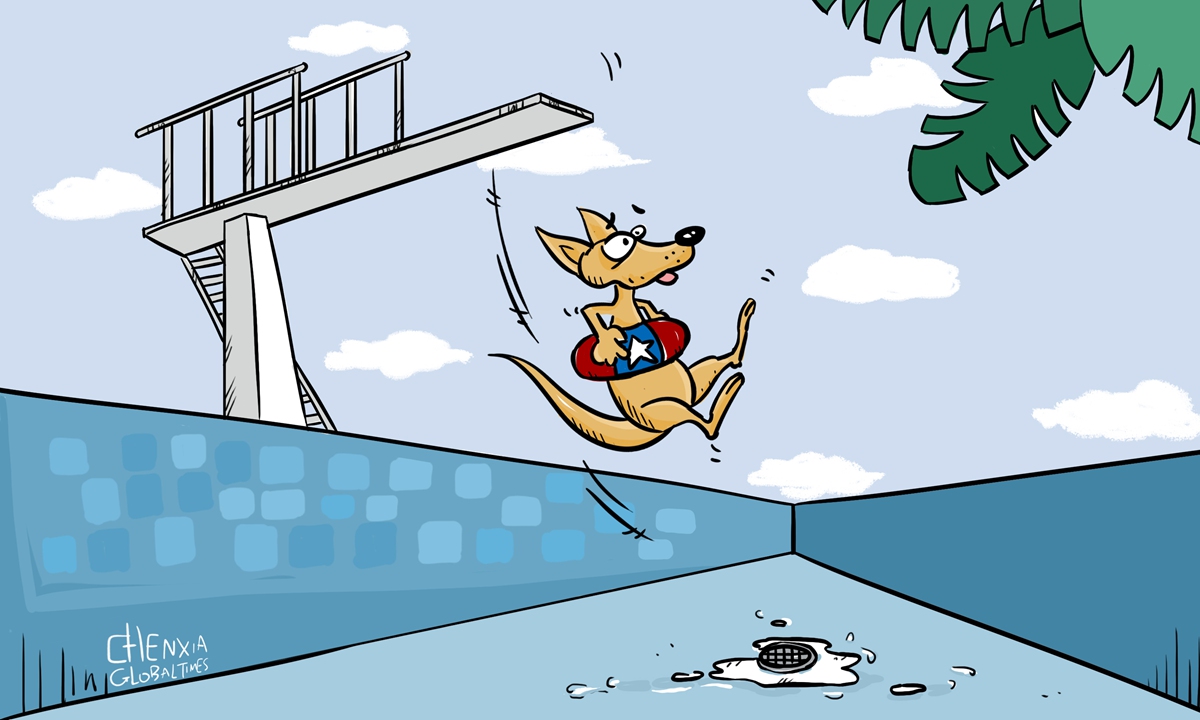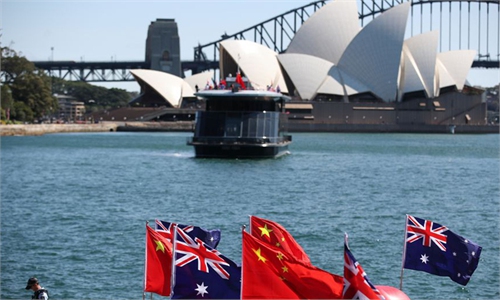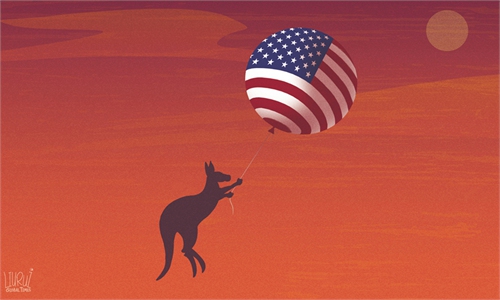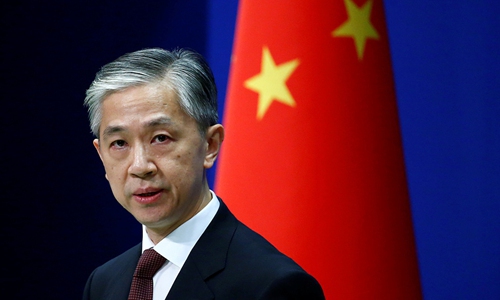
Illustration: Chen Xia/GT
After Australia tore up Victoria's Belt and Road agreement with China, will the lease of the Port of Darwin to a Chinese company be next? Conjecture is mounting after Australian Defense Minister Peter Dutton suggested on Sunday the program may be reviewed under the name of "national interests." Former prime minister Kevin Rudd echoed the view on Tuesday, predicting the Morrison administration will "tear up the lease" during an interview with ABC (Australian Broadcasting Corporation) Radio Darwin.
The 99-year lease, worth AU$506 million ($393 million), was inked in 2015 between Chinese company, Landbridge Group, and Australia's Northern Territory government. At that time, Canberra was promoting its vision and strategy for developing Northern Australia, hoping to turn the vastly underdeveloped region into a thriving place of manufacturing, clean energy and research and innovation. Yet Australia is short of funding for it, thus the country invited foreign enterprises for investment. The successful Landbridge bid helped resolve the region's issue over the lack of cash for development.
In the same year, then secretary of the Department of Defense Dennis Richardson told Australian Senate committee that the rhetoric of Landbridge's lease posing a security risk was "absurd" and "alarmist nonsense." However, six years later, Australia is making a U-turn in its stance. The previous "absurd nonsense" has become a matter of national interests. No one ever provided any evidence. It seems what the lease really is depends on what Australian politicians say based on their political calculations.
The lease did not change, but the international environment has. Six years ago, China and the US had stable ties. Yet the US is launching a comprehensive containment against China today.
Observers believe that for the Australian government, the so-called national interests is all about following the US' footsteps closely to maintain Canberra's regional hegemony based on Washington's endorsement. And for Australian politicians, only a nod from the US can help them secure a promotion in their personal careers. They could not care less about national interests when it comes to their appetite over their personal political future.
Yu Lei, chief research fellow at the research center for Pacific island countries of Liaocheng University in East China's Shandong Province, told the Global Times on Tuesday, "Dutton is a figure with big ambition, so is Foreign Minister Marise Payne, they are both seeking to become prime minister." So when they talk about "national interests," rest assured, it has nothing to do with the country's economy, long-term development or people's living standards, Yu said, adding it is all about their personal gains.
China poses no threat to Australia's national interests and it has no political ambition to interfere in Australia's affairs, Yu said, adding the Darwin Port lease is a pure business deal with no military purposes.
On the contrary, it is Washington who has major strategic needs from the port. In 2019, a US Congressional bill revealed that a total of $211.5 million had been allocated for new "Navy Military Construction" in Darwin as it expanded its military presence in Australia, according to the ABC. In the same year, Australia invested $715 million in naval facilities in the Northern Territory that hosts US Navy warships, Stars and Stripes reported. In 2020, the Australian government announced a $1.1 billion upgrade to the Northern Territory's air force base in a bid to expand Australia and the US' air force capabilities into the Indo-Pacific, reports show.
For the US, the Darwin Port is a strategically vital position which could enable US forces to take the Strait of Malacca under control, cutting off China's maritime transportation line, Yu noted. Therefore, amid intensifying competition between China and the US, the issue of Darwin port naturally surfaced. Yet if Australian politicians shred China's lease by stressing "national interests," it will only lay bare their political selfishness, without making any sense.
Xu Shanpin, adjunct researcher at the Center for Australia Studies, China University of Mining and Technology, told the Global Times that if Canberra tears the lease up, its inconsistency in words and deeds and the move to break its deals will further erode Australia's national image and credibility.
The country's economic development will also suffer from more hardships. "Australia's plan to develop its north has died," Yu said, adding so is its vision on economic transformation, as the country has wrecked too many cooperative projects that could bring it more investment.
In Xu's opinion, the already icy political ties between Beijing and Canberra will take another dive, the pace of economic decoupling between the two countries will accelerate, their strategic mutual trust will totally wither, and the possibility of strategic misjudgment will be greatly increased.
The author is a reporter with Global Times. opinion@globaltimes.com.cn



